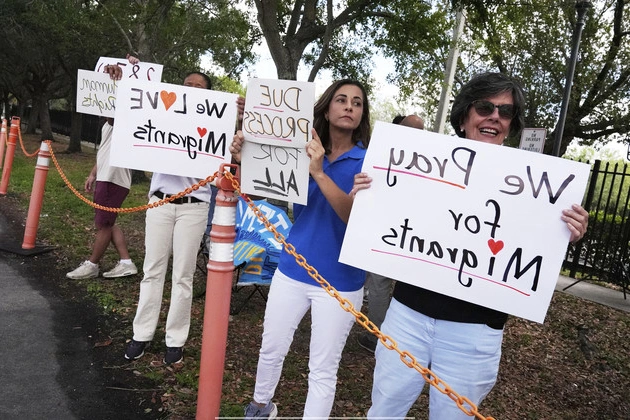
A fundamental promise by America’s founders — that no one should be punished by the state without a fair hearing — is under threat, a growing chorus of federal judges say.
That concept of “due process under law,” borrowed from the Magna Carta and enshrined in the Bill of Rights, is most clearly imperiled for the immigrants President Donald Trump intends to summarily deport, they say, but U.S. citizens should be wary, too.
Warning Signs from Judges
Across the country, judges appointed by presidents of both parties — including Trump himself — are escalating warnings about what they see as an erosion of due process caused by the Trump administration’s mass deportation campaign. What started with a focus on people Trump has deemed “terrorists” and “gang members” — despite their fierce denials — could easily expand to other groups, including Americans, these judges warn.
The Fight for Rights
“When the courts say due process is important, we’re not unhinged, we’re not radicals,” U.S. District Judge Ana Reyes, a Washington, D.C.-based appointee of President Joe Biden, said at a recent hearing. “We are literally trying to enforce a process embodied in probably the most significant document with respect to peoples’ rights against tyrannical government oppression. That’s what we’re doing here. Okay?”
It’s a fight that judges are increasingly casting as existential, rooted in the 5th Amendment’s guarantee that “no person shall … be deprived of life, liberty or property, without due process of law.” The word “person,” courts have noted, makes no distinction between citizens or noncitizens. The Supreme Court has long held that this fundamental promise extends to immigrants in deportation proceedings. In a 1993 opinion, Justice Antonin Scalia called that principle “well-established.”
The Trump Administration’s Resistance
The Trump administration has resisted these odes to process as overwrought and unrealistic. Trump and his aides say voters elected him to cast out immigrants in the country illegally. That electoral mandate deserves virtually unlimited weight, they say.
“Over 77 million Americans gave President Trump a resounding Election Day mandate to enforce our immigration laws and mass deport criminal illegal aliens,” said White House spokesperson Kush Desai. “The Trump administration is using every power endowed to the Executive Branch by the Constitution and Congress, such as Expedited Removal, to deliver on this mandate.”
Judges’ Concerns and Actions
Despite the heightened alarm of the courts, tension over due process is not novel to the Trump administration. The executive branch has long chafed over due process rights, which by design slow down initiatives that might move at lightning speed in a country without similar protections.
Several cases have been playing out for months and some, like Abrego Garcia’s, have received national attention, while others have remained in relative obscurity. But the tenor from the courts is consistent.
Protecting American Rights
Across the country, judges grappling with due process concerns returned repeatedly to one central premise. If immigrants can be summarily labeled gang members or terrorists and deported, delivered to any country without warning, detained without a hearing or stripped of their ability to attend college in the United States, it could happen to U.S. citizens, too.
“If the government contends that it has the ability to take someone it thinks is a noncitizen off the street without any process whatsoever — without any guarantee even that the person is who the government claims he is — then what is to stop the government from detaining someone who really is a citizen, even perhaps a sitting judge?” Vilardo wrote in the Ceesay case.
Wilkinson’s colleague on the 4th Circuit, Obama appointee Stephanie Thacker, agreed.











